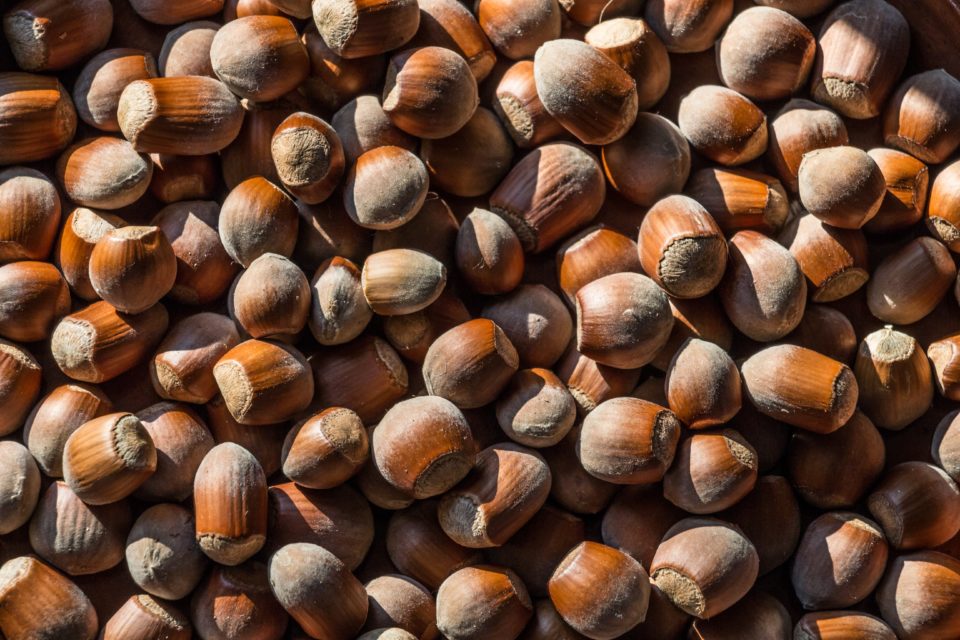Overview
Due to recent advances in food harvesting and processing, many nuts and seeds that have long been considered superfoods are becoming more readily available. As the availability of nuts have increased, so has the research surrounding their health benefits. We hope that this article helps you understand the various types of nuts and seeds that have entered the market, and their numerous health benefits.
Types of Nuts
Nuts are defined pretty specifically, but here we will refer to nuts in the culinary sense. If we were speaking technically, some of these foods are not considered “true nuts” because they are actually the seeds of other fruits. However, since we are speaking in a strictly culinary sense, all of these nuts have similar textures, tastes, and health benefits.
Almonds
Almonds are an excellent food to add to anyone’s diet. Though they aren’t technically nuts, they are contain many of the same culinary properties of other nuts. One of the most common ways to eat almonds is raw, although they are also occasionally added to casseroles, salads, breakfast cereals, trail mixes, and so much more. Almond milk has also become a recent favorite milk substitute, both among vegans and those who are lactose intolerant.
Benefits of Almonds
Almonds are a low calorie food that is high in fiber. This means they help your body digest food more efficiently, without putting on extra weight. They are also packed vitamins and nutrients, such as:
- Vitamin E — Antioxidant and vitamin essential for heart health
- Magnesium — Supports a normal, regular heartbeat and maintains bone density
- Potassium — Relief from heart disease, hypertension, supports kidney health and helps control stress and anxiety
- Folic Acid — Prevention of heart disorders, cancer and birth defects during pregnancy
- Omega 6 — Research shows a synergetic antioxidant effect, meaning it will increase the effects of antioxidants
- Manganese — Helps promote healthy bones and an increased metabolic rate
- Copper — Maintains cognitive function, strengthen immune system, supports bone density, anti-inflammatory effect
Walnut
Despite having the word “nut” in their name, they are actually the edible seeds from Juglans trees. Each of these fruit has a single seed encased in the husk, which is inedible. They have a crunchy texture and an excellent taste which makes them great for use in cakes, cookies, granola, energy bars, but in my favorite: banana walnut bread. Additionally, ground walnut flour is used by some as a substitute for traditional flour.
Benefits of Walnuts
- Omega-6 — Research shows a synergetic antioxidant effect, meaning it will increase the effects of antioxidants
- Omega-3 — Evidence suggests that these acids help lower the effects of hypertension for those who suffer from it
- Vitamin C — This vitamin is essential to keeping your immune system functioning properly
- Vitamin B6 — Assists with the production of neurons(brain cells) and hemoglobin, which is responsible for clotting
- Riboflavin — Essential for cornea and eye health, prevents migraines
- Calcium — Vital to the muscular, circulatory, and digestive systems of the patient
- Iron — Prevents anemia, which causes fatigue, suppressed immune system, and irritability
- Magnesium — Supports a normal, regular heartbeat and maintains bone density
Pecans
The first actual nut on our list, the pecan is brown with an edible kernel. They have a sweet taste and a buttery texture compared to the other nuts on this list, they are commonly used in pecan pie, a classic winter holiday tradition from America. They are a high energy, high fiber nut and are one of the best sources of plant-based protein.
Benefits of Pecans
- Riboflavin — Essential for cornea and eye health, prevents migraines
- Folic Acid — Prevention of heart disorders, cancer and birth defects during pregnancy
- Vitamin A — Essential for eye health and boosting reproductive health in both men and women
- Vitamin B6 — Assists with the production of neurons(brain cells) and hemoglobin, which is responsible for clotting
- Vitamin C — This vitamin is essential to keeping your immune system functioning properly
- Vitamin E — Antioxidant and vitamin essential for heart health
- Vitamin K — Vital role in helping the blood clot, preventing excessive bleeding
- Calcium — Vital to the muscular, circulatory, and digestive systems of the patient
- Iron — Prevents anemia, which causes fatigue, suppressed immune system, and irritability
- Magnesium — Supports a normal, regular heartbeat and maintains bone density
- Potassium — Relief from heart disease, hypertension, supports kidney health and helps control stress and anxiety
- Copper — Maintains cognitive function, strengthen immune system, supports bone density, anti-inflammatory effect
Brazil Nuts
Brazil Nuts are pretty high in protein, but also high in “good” fats. They contain 38% monounsaturated fats and 32% polyunsaturated fats, both of which are important for your overall body health. They also are pretty high in fiber and low calorie.
Benefits of Brazil Nuts
- Selenium — This rare trace mineral is mainly derived from the soil and water that the nuts are grown in. It is required for a variety of essential bodily activities
- Vitamin C — This vitamin is essential to keeping your immune system functioning properly
- Vitamin E — Antioxidant and vitamin essential for heart health
- Folic Acid — Prevention of heart disorders, cancer and birth defects during pregnancy
- Iron — Prevents anemia, which causes fatigue, suppressed immune system, and irritability
- Magnesium — Supports a normal, regular heartbeat and maintains bone density
- Phosphorus — Increases bone formation and density, improved digestion and protein formation
- Potassium — Relief from heart disease, hypertension, supports kidney health and helps control stress and anxiety
- Omega-6 — Research shows a synergetic antioxidant effect, meaning it will increase the effects of antioxidants
Hazelnuts
Hazelnuts are a wide collection of nut species that come from a variety of trees, all harvested annually in the middle of autumn. They are very filling and give you long-lasting energy and a great dose of fiber. Like the other nuts on this list, they contain a high-amount of “good fats” and are low in calories. Alongside this, they are packed with vitamins and minerals. Hazelnuts are usually enjoyed raw, roasted, in paste, or as an ingredient in numerous health-conscious dishes.
Benefits of Hazelnuts
- Copper — Maintains cognitive function, strengthen immune system, supports bone density, anti-inflammatory effect
- Magnesium — Supports a normal, regular heartbeat and maintains bone density
- Vitamin E — Antioxidant and vitamin essential for heart health
- Vitamin B6 — Assists with the production of neurons(brain cells) and hemoglobin, which is responsible for clotting
- Folic Acid — Prevention of heart disorders, cancer and birth defects during pregnancy
- Iron — Prevents anemia, which causes fatigue, suppressed immune system, and irritability
- Vitamin K — Vital role in helping the blood clot, preventing excessive bleeding
- Potassium — Relief from heart disease, hypertension, supports kidney health and helps control stress and anxiety
- Phosphorus — Increases bone formation and density, improved digestion and protein formation
More Information
Did we miss your favorite nut? Let us know in the comments below and we will get right on it!


